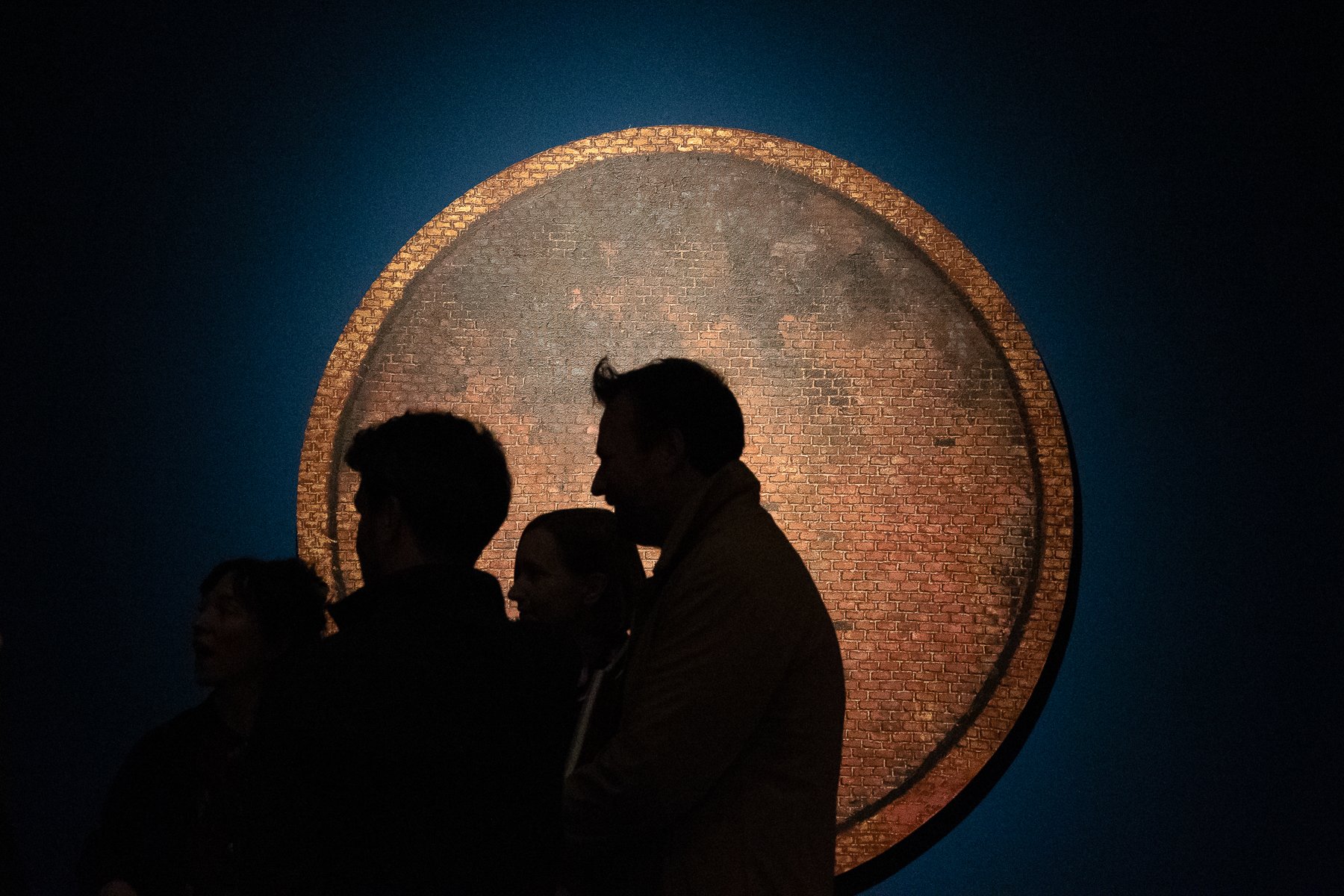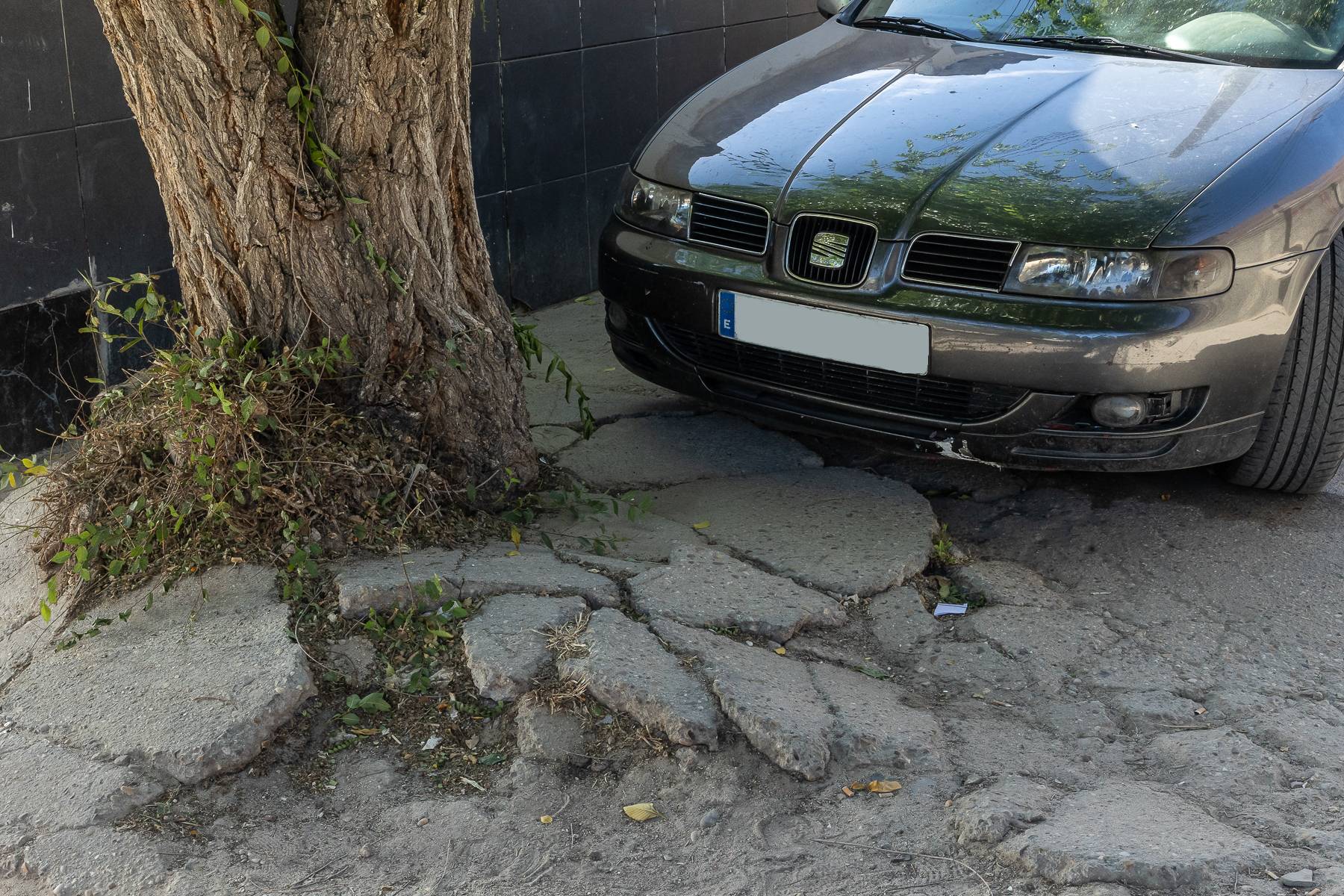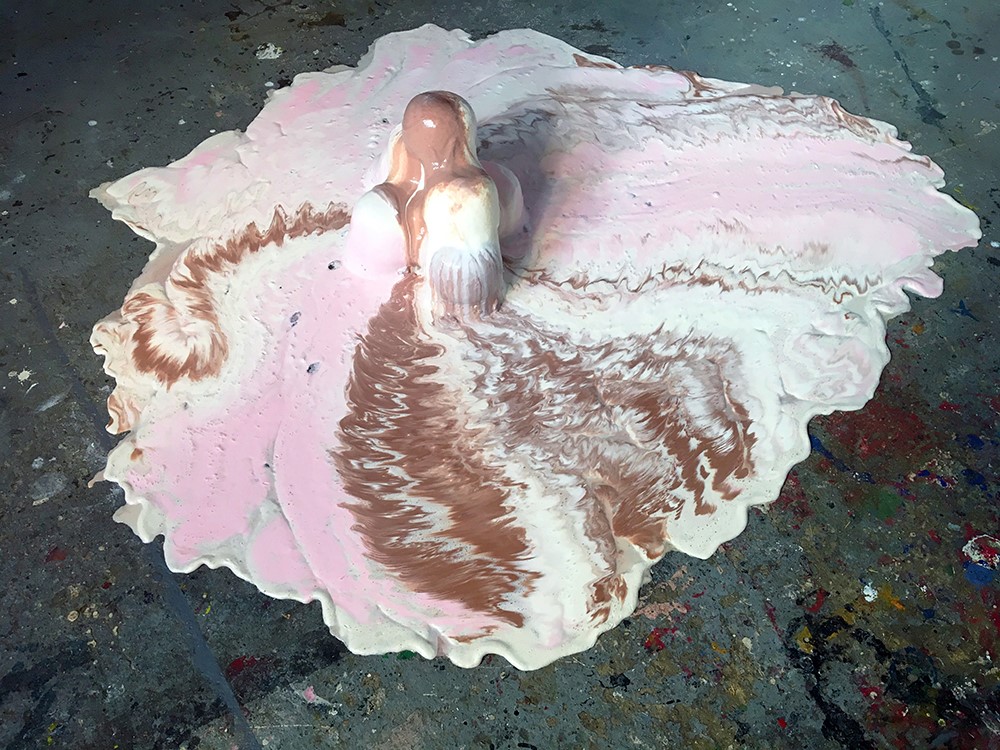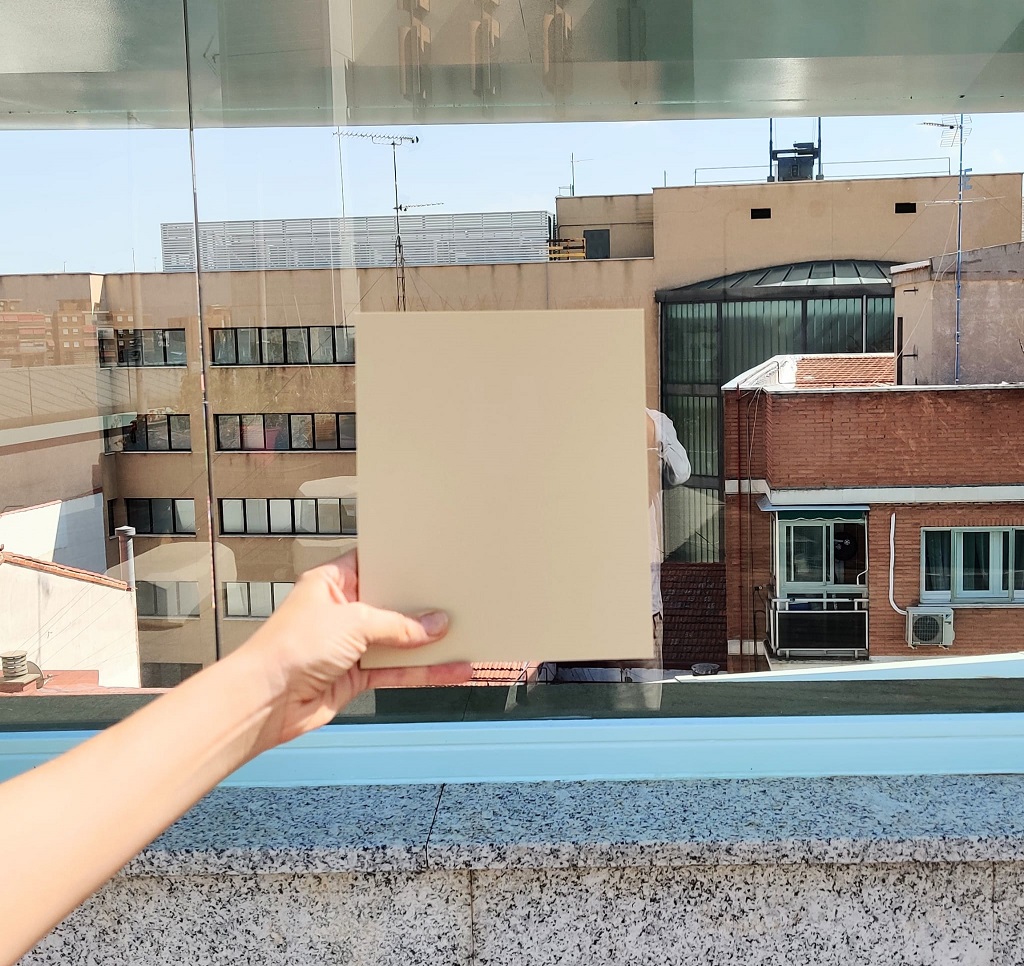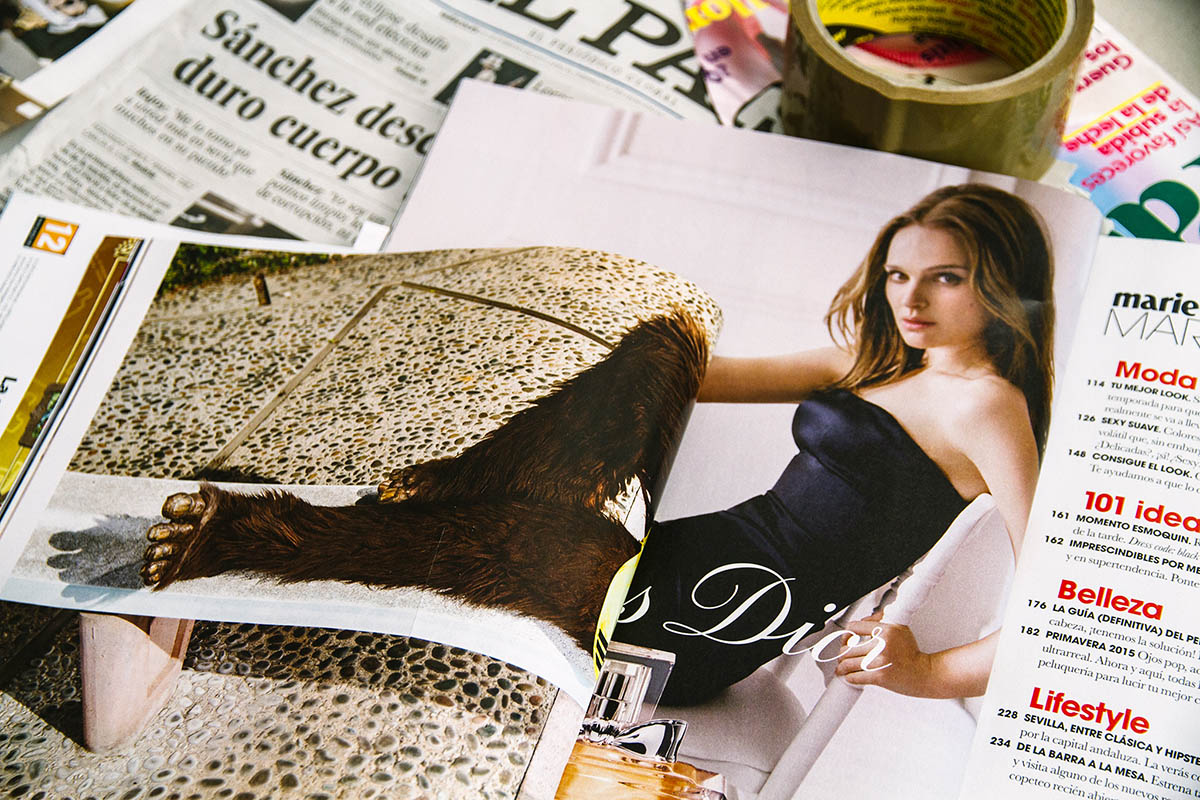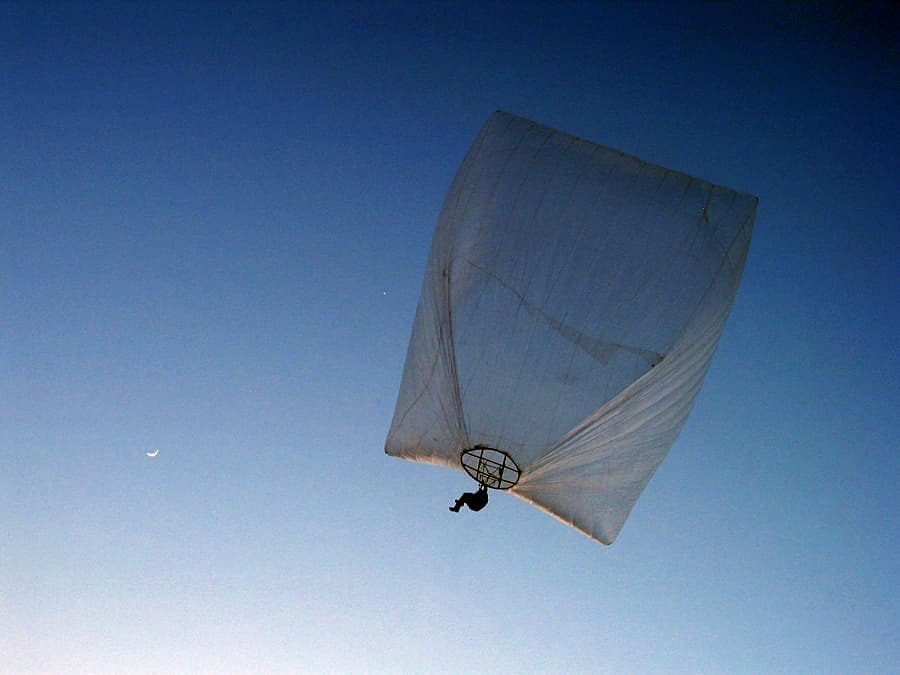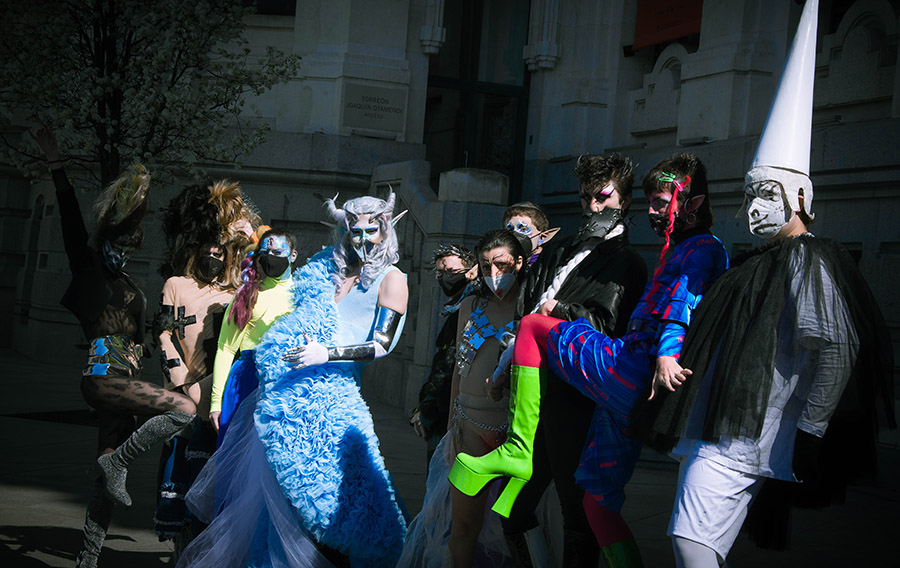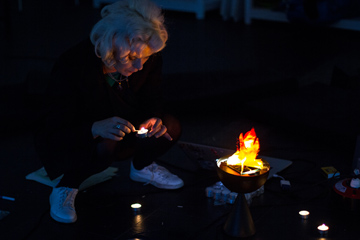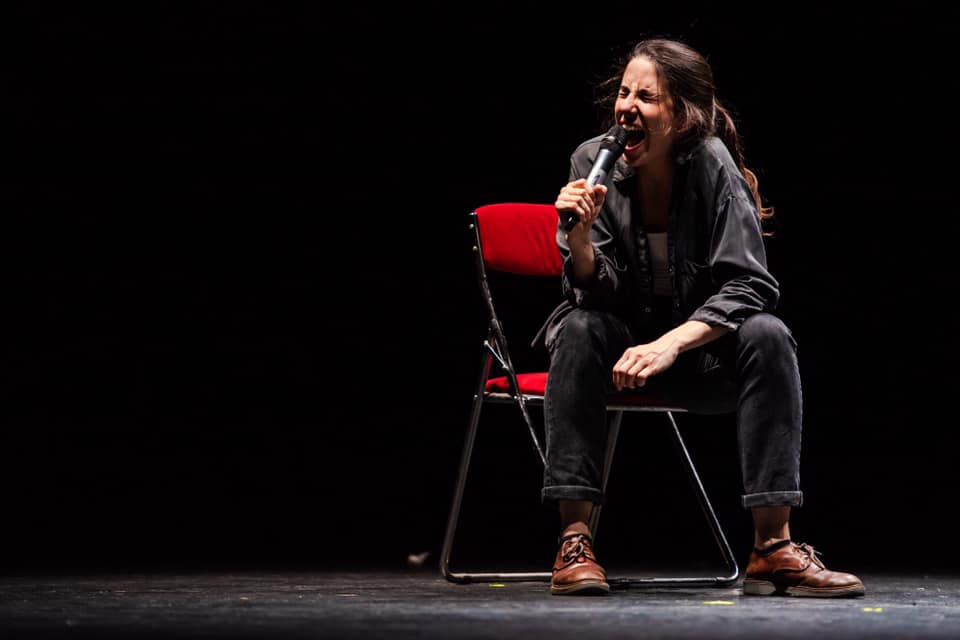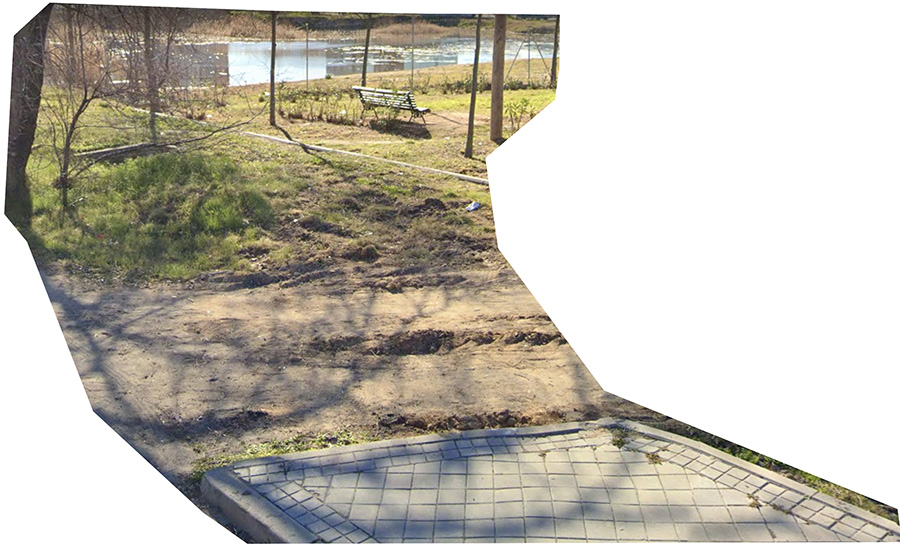Everyone dreams of flying, the artist Olga Diego tells us, but if you haven’t yet dreamed of flying, there is still time.
During the last school year Universidad Popular took up the challenge to bewitch us again with art, to rediscover the ability to inspire awe. Starting out from this idea, the museum’s educational department has conceived this year’s programme as a place where the incredible can happen because it makes us believe in it. The sessions will focus on thinking about or experimenting with occult practices related with art that subvert scientific logic and conventional forms of knowledge: art practices that deceive the eye, that work with the inexplicable and turn lead into gold.
The course will use a series of publications which will be available for consulting at the CA2M library. In addition, before each session, we invite participants to join in a group reading of a publication selected for the occasion.
CA2M organises further educational activities in contemporary art and thinking within the tradition of community adult education centres. Its courses address some of the fundamental issues for a proper understanding of art today. They are divided into two parts: the first consists in the presentation of a theme by a guest speaker and the second consists in opening a debate to all participants. This structure can change to accommodate more experimental formats introduced by the individual guest speakers at each session.
SESSIONS
24 OCTOBER
Make Yourself Matter to Someone
Raisa Maudit is preparing a performative conference which will explore the laws of desire in force both in the practice of magic and the occult as well as in art. Through a survey of different occult practices ranging from the nineteenth century until the present moment and the core axes of her artistic and curatorial work, we will address questions on dissident identities, surviving the system, inhabiting darkness, and how to achieve your desires but only perishing a little in the attempt.
Magic is the definitive art. We understand Magic and the Occult as all those processes that are based on symbolism and imagination which, through actions and words, wish to affect their surroundings by engendering changes and transformations in natural laws, in space, in time, in bodies, in psyches and in identities. No form of magic is possible without putting it into practice. In magic, practice starts out from an almost suicidal openness to leap into the unknown and letting it hit you with all it has got. It is based on questioning each and every one of the things that we take for granted. Magic hopes to alter the very weft of reality itself. Magic and Art have points in common such as speculation and the allegorical but at once they have a beef in which Art always loses out. We will take a look at Dion Fortune and psychic self-defence, The Craft, otherkin identities, vampires as the definitive evolution, demonology, Magic Battles, neuro-divergent rebellion, and how to get your hands on a free home.
Raisa Maudit is an artist and curator
http://raisamaudit.com/
31 OCTOBER
Queer Spirituality as Resistance. Yet Another Path in the Conspiracy.
Diego Rambova will lead us on an exercise in fragmentary mapping through a range of contemporary performative practices which are presented as a kind of common ground between new age and queer politics, revealing how, both for the artists who propose them but also in their own right, the confluence is a powerful site of agency, resistance and transcendence. Represented by artists of different ages and from different origins around the world from the seventies onwards, they appear under many different guises. But the truth is that they all respond—as we shall see—to the same “conspiracy”.
Diego Rambova is an artist and researcher.
www.diegorambova.com
7 NOVEMBER
Performance Lecture for Flying
Is it possible to fly? We all know that you can, but … What happens when you realise that you can fly on your own? This lecture explores the irrational desire to fly and its materialisation in artistic creation, in manifold studies and calculations, prior sketches in flight books, failed attempts and disappointments. And also the involvement of the public. Flight artefacts built from a sculptural gaze and attempts to fly as performance art.
We will take a look at, among others, the projects created by Olga Diego since 2003, when she managed to take to flight on the beach of Carabassí in Alicante, as well as other flights with cameras in the Western Sahara and in Salamanca, or more interactive projects like the one developed by the University of California in 2017.
Olga Diego is an artist
http://olgadiego.blogspot.com/
14 NOVEMBER
Just as Up is Down, Down is Up
In this lecture Marian Garrido has devised a walkthrough of the symbolic dimensions of lost forms of knowledge and the narrative constructed through the bonds between art and magic or alchemy. Is there really any difference between an extract from The Teachings of Don Juan: A Yaqui Way of Knowledge, in which Carlos Castaneda learns to fly guided by the expert hands of a shaman, and the experiences related by Terence McKenna or Douglas Rushkoff in Cyberia in a framework of comparison with online culture; virtual realities, flight simulators, videogames or the visual rendering of almost vaporous omniscience in Gaspar Noé’s Enter the Void and neo-touristic journeys in Google Earth?
Marian Garrido is an artist and researcher
www.mariangarrido.com
21 NOVEMBER
Angels of Anarchy. Modern Shamans, Artists of the Invisible
Servando Rocha reveals to us a secret tradition that unites art and magic through the masked figure, both in popular culture as well as in movements like Dada or Surrealism which were fascinated by the primitive, the mask, the world of spirits and the unknown. The intervention includes a Cabinet of Curiosities of the world of secret societies and masking as a tactic but also as transformative potential.
Servando Rocha is a writer and editor.
www.servandorocha.com
28 NOVEMBER
From Spell to Spell, from (Magical) Gesture to Gesture
Ana Contreras invites us to a performative lecture which will uncover the ways in which bonds between feminism and witchcraft have been woven over time, from the medieval period to postmodernism. It will take us on a secret journey through its appearances and persecutions from which we will be able to extract lessons about its dangers and its powers. A witches coven that discloses the importance of occult practices and performative tactics, as well as their conscious and unconscious use in contemporary art.
Ana Contreras is a stage director, researcher and lecturer
Anyone interested in art today. No prior knowledge necessary.
More information at actividades.ca2m@madrid.org / 912 760 227
